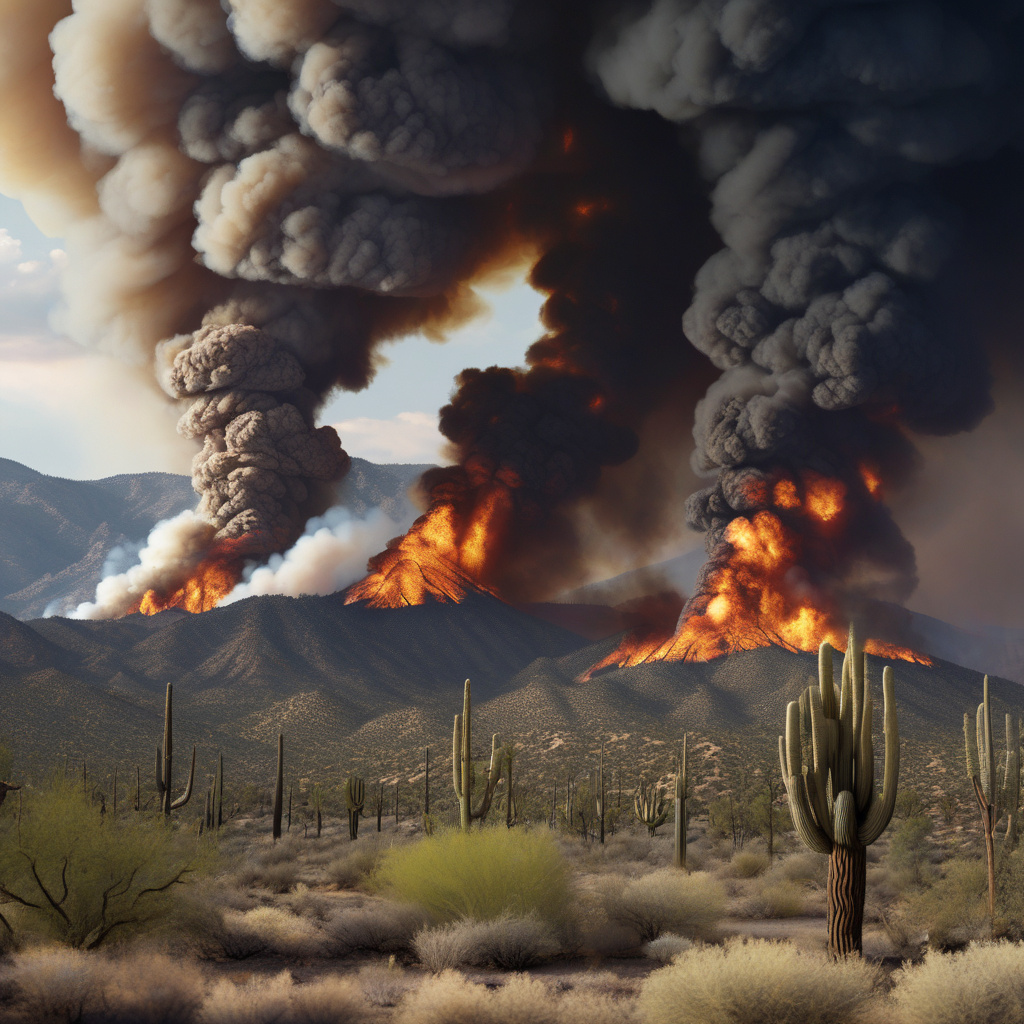Arizona lawmakers are currently at a crucial juncture, deliberating a groundbreaking bill that could potentially reshape the landscape of wildfire liability. If passed, this legislation would not only shield utilities from the brunt of wildfire-related lawsuits but also pivot the burden of responsibility onto insurers, marking a significant departure from the status quo.
Under this proposed law, the onus of proving utilities accountable for wildfires ignited by defective or inadequately maintained equipment would be substantially heightened. Additionally, the bill aims to impose limitations on the extent of damages that utilities could be held liable for in such instances. This shift in liability allocation has far-reaching implications, especially for insurance companies operating within the state of Arizona.
The potential ramifications of this legislative proposal are multifaceted. On one hand, if utilities are granted reduced liability in cases of wildfire outbreaks, insurers may find themselves grappling with escalated financial risks. The increased uncertainty surrounding the extent of damages and culpability could translate into higher insurance premiums for policyholders, as insurers seek to mitigate their newfound exposure to wildfire-related claims.
Moreover, the proposed bill underscores a broader trend in the intersection of governmental regulations, corporate accountability, and risk management. By altering the traditional framework of liability attribution in wildfire incidents, Arizona is poised to set a precedent that could reverberate across other jurisdictions grappling with similar challenges in the face of escalating wildfire threats.
In light of these developments, industry stakeholders, including insurers, policymakers, and utility companies, are closely monitoring the legislative trajectory of this bill. The outcome of this deliberation will not only shape the future of wildfire liability in Arizona but also serve as a litmus test for potential legislative shifts in other regions grappling with the complex interplay of utility infrastructure, natural disasters, and insurance dynamics.
As the discourse surrounding this bill unfolds, it underscores the intricate dance between regulatory frameworks, corporate interests, and societal impacts. The implications of this legislative maneuver extend beyond the confines of Arizona, resonating with a broader audience of professionals engaged in risk assessment, insurance underwriting, and policy advocacy across the spectrum of IT and development sectors.
In conclusion, the proposed legislation in Arizona represents a pivotal moment in the ongoing dialogue on wildfire liability and risk management. The potential realignment of responsibilities from utilities to insurers underscores the evolving nature of regulatory landscapes and the imperative for adaptive strategies in mitigating wildfire-related risks. As the legislative process unfolds, stakeholders must remain vigilant, attuned to the shifting dynamics that could redefine the contours of accountability in the realm of wildfire incidents.

